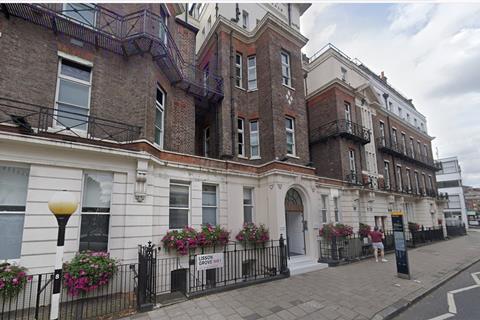In Zgonec-Rozej and Others v Pereira [2025] EWCA Civ 171, the claim arose from the tragic death of John Jones QC on 18 April 2016. At the time of his death, Jones was a voluntary inpatient at the Nightingale Hospital (pictured below). He was under the care of Dr Stephen Pereira, a consultant psychiatrist.

Jones was admitted to the Nightingale Hospital on 22 March 2016. On or around that day, his treating psychiatrist, Dr Pereira, began three weeks of leave. However, he did not tell his patient that he was going on leave. There was then a handover of Jones’ case to another psychiatrist at the hospital, Dr Neelam Bakshi. On 23 and 29 March, Jones declined group therapy but said that he would accept 1-to-1 cognitive behavioural therapy. Dr Bakshi said that she had had a couple of therapy sessions with Jones but he had not given her access to ‘his inner world’. On 8 April, Dr Bakshi went on leave and on 10 April Dr Pereira again resumed responsibility for Jones’ care. On the weekend before Jones’ death, he was discharged from the Nightingale Hospital and stayed with his family. He then returned to the hospital on Sunday evening. Early in the morning of 18 April, Jones died at West Hampstead station following a collision with a train.

The Jones’ family’s claims in negligence against the Nightingale Hospital and against Dr Bakshi were settled a few days before trial without admission of liability. The claim against Dr Pereira proceeded to trial. Although the judge found three breaches of duty, the claim was dismissed because the judge found that those breaches had not caused Jones’ death. The claimants appealed to the Court of Appeal.
Lady Justice Nicola Davies, giving the unanimous judgment of the court, said the first breach of duty was Dr Pereira’s failure to tell Jones about his forthcoming three-week absence. The trial judge had found that there was no evidence that this omission had caused any measurable harm or contributed to his death.
The second breach was Dr Pereira’s failure to give a sufficient handover to Dr Bakshi. The trial judge had said that during Jones’ hospitalisation, from 23 March to 10 April, there was very little evidence as to the care that he received. This was the consequence of the settlement agreed between the claimants and Dr Bakshi and the Nightingale Hospital. The trial judge had seen medical records made during the period 23 March to 10 April but he had concluded that he was not in a position to assess the standard of care that took place during that time. Moreover, he had heard no evidence about the standard of care given by Dr Bakshi.
The third breach of duty was a failure on the part of Dr Pereira to arrange psychotherapy expeditiously after he returned from leave. At trial, expert evidence had been given that therapy needed to occur on a long-term basis if it was to lead to a beneficial effect. The trial judge had found that there was considerable uncertainty about whether an initial session would have had a positive effect on Jones’ feelings. There was also little evidence as to why he took his life on 18 April.
The defendant had argued that there was an element of contributory negligence on the part of Jones. The trial judge found that although Jones’ mental health was poor, he was having rational interactions with hospital staff and others in the last days of his life. Had he found for the claimants on causation, the trial judge said that he would have reduced any award of damages by 25% to reflect the degree of autonomy in the suicidal act.
Davies LJ said that a fundamental difficulty was the settlement reached without admission of liability between the claimants, Dr Bakshi and the Nightingale Hospital. The absence of evidence from the treating clinician Dr Bakshi in respect of the period during which she was looking after Jones meant that the judge was unable to make any findings as to the nature and level of care which Jones did or should have received during that period. Such findings could have been relevant to the issue of causation given the judge’s determination that there was a negligent handover from Dr Pereira to Dr Bakshi on 22 or 23 March 2016.
The trial judge had said that when Dr Pereira was on leave he could not be liable in law for any omission in the treatment of Jones. Davies LJ said that this was a reasonable conclusion given the lack of evidence as to Dr Bakshi’s clinical decision-making, the clinical picture between Jones’ admission to hospital and Dr Pereira’s return and any intervention by other healthcare professionals.
In relation to the third breach, the failure by Dr Pereira to promptly effect the process for therapy, Davies LJ said that the trial judge was entitled to find that this did not lead to Jones’ death.
In relation to material contribution, the claimants had argued that the judge should have considered (as an alternative) whether any negligence made a material (more than negligible) contribution to his death, after the approach identified in Bailey v Ministry of Defence [2009] 1 WLR 1052. Davies LJ said that the judge had correctly concluded that, in circumstances where a ‘but for’ finding was possible on the balance of probabilities, the doctrine of material contribution did not arise. In any event, there was nothing in any of the findings by the judge which began to provide a factual basis for the material contribution argument.
Given that the Court of Appeal had found against the claimants in relation to the issues of causation and material contribution, there was no need to decide the issue of contributory negligence.
Malcolm Johnson is head of the abuse compensation claims department at Lime Solicitors, London































No comments yet